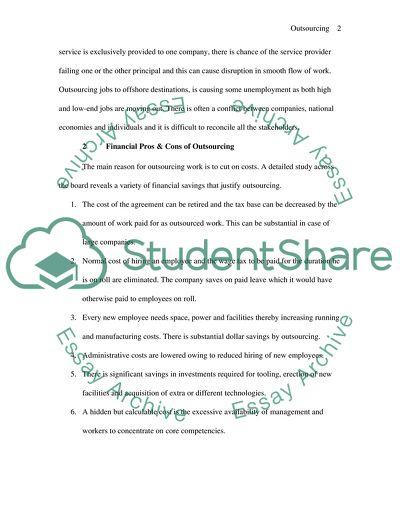Cite this document
(The Financial Pros and Cons of Outsourcing Report, n.d.)
The Financial Pros and Cons of Outsourcing Report. https://studentshare.org/finance-accounting/1542216-the-financial-pros-and-cons-of-outsourcing-how-to-judge-wether-an-activity-should-be-outsourced
The Financial Pros and Cons of Outsourcing Report. https://studentshare.org/finance-accounting/1542216-the-financial-pros-and-cons-of-outsourcing-how-to-judge-wether-an-activity-should-be-outsourced
(The Financial Pros and Cons of Outsourcing Report)
The Financial Pros and Cons of Outsourcing Report. https://studentshare.org/finance-accounting/1542216-the-financial-pros-and-cons-of-outsourcing-how-to-judge-wether-an-activity-should-be-outsourced.
The Financial Pros and Cons of Outsourcing Report. https://studentshare.org/finance-accounting/1542216-the-financial-pros-and-cons-of-outsourcing-how-to-judge-wether-an-activity-should-be-outsourced.
“The Financial Pros and Cons of Outsourcing Report”. https://studentshare.org/finance-accounting/1542216-the-financial-pros-and-cons-of-outsourcing-how-to-judge-wether-an-activity-should-be-outsourced.


